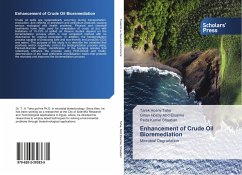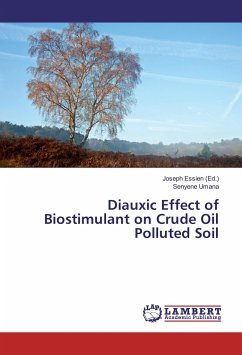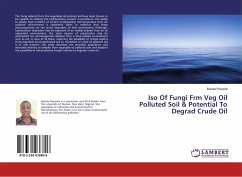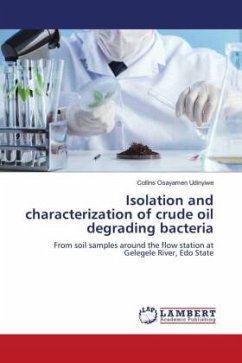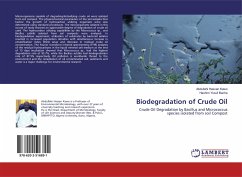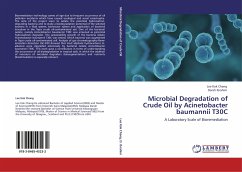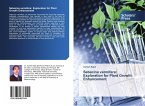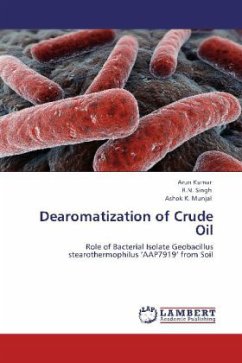Crude oil spills are systematically occurring during transportation, production, and refining of petroleum and petroleum products causing serious ecological and health problems. Physical and chemical treatments have been used for remediation of crude oil but with limitations of 10-15% of spilled oil. Recent studies depend on the bioremediation process which is cost competent method with no disturbance for original ecosystem. In addition, the biodegradation process capable of producing safe and eco-friendly end products (CO2 and water). The purpose of this study is to describe the variables that positively and/or negatively control the biodegradation process using; Plackett-Burman design, identification of the bacterial isolates that collectively enhance the process using PCR-DGGE and finally, determination of the most preferable immobilization matrix that protects the microbes and improves the bioremediation process.
Bitte wählen Sie Ihr Anliegen aus.
Rechnungen
Retourenschein anfordern
Bestellstatus
Storno

